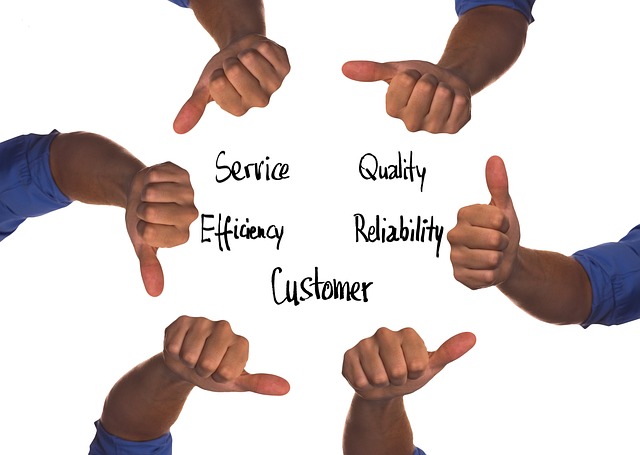Understanding the Importance of Business Relationships
When it comes to thriving in today’s competitive landscape, understanding the importance of business relationships can’t be overstated. These relationships go beyond mere transactions; they form the backbone of successful companies. Business relationships encompass a range of connections, from partnerships and collaborations to vendor-client interactions. By cultivating strong connections, organizations can unlock new opportunities, enhance their reputation, and foster loyalty among stakeholders. Companies that invest time and effort into managing these relationships effectively consistently outperform their peers. But what does it mean to manage these relationships effectively, and why is it essential? Let’s delve into the intricacies of business relationships and discover practical tips for effective management.
The Pillars of Strong Business Relationships
At the core of every successful business relationship are foundational pillars such as trust, communication, and respect. Trust is probably the most crucial element. Without trust, business interactions turn transactional and cold. Building trust takes time and consistent effort. It involves being transparent in your dealings, keeping promises, and demonstrating reliability. Furthermore, communication plays a vital role in fostering trust. Open, honest, and frequent communication ensures that all parties involved are aligned and working towards common goals. On the flip side, poor communication can lead to misunderstandings, conflicts, and in severe cases, the breakdown of a relationship. Respect is another essential component. Acknowledging the value of others and treating them with dignity fosters a positive atmosphere. When you show respect, you lay a stable foundation for collaboration and innovation. Thus, understanding these pillars can guide your relationship management efforts.
Developing Effective Communication Strategies
Having effective communication strategies is vital when it comes to managing business relationships. Clear communication ensures that everyone is on the same page, minimizing the risk of misunderstandings. One of the best ways to cultivate effective communication is by implementing regular check-ins. Whether through scheduled meetings or informal chats, these updates give all parties a chance to share insights, discuss challenges, and recognize achievements. Additionally, using the right tools can facilitate seamless communication. Consider leveraging platforms like Slack, Microsoft Teams, or Asana to enhance collaboration. Moreover, adopting a proactive approach is crucial. Don’t wait for issues to arise. Anticipating potential concerns and addressing them before they escalate can save your relationship from unnecessary strain. Finally, be open to receiving feedback. Constructive criticism can lead to improvements you might not have considered. By fostering a culture of open dialogue, you build a stronger foundation for your business relationships.
Setting Boundaries and Expectations
In any relationship, setting boundaries and clear expectations is essential for preventing misunderstandings. Business relationships are no different. It’s crucial to discuss what is acceptable and what isn’t right from the outset. By openly communicating these boundaries, you ensure that all parties understand their roles and responsibilities. For instance, if you’re collaborating on a project, outline deadlines, deliverables, and modes of communication ahead of time. This clarity eliminates confusion and sets the stage for a smoother collaboration. Furthermore, revisit these boundaries periodically. As relationships evolve, so might the dynamics between parties. Regularly checking in to ensure that everyone is comfortable and aligned can prevent potential conflicts down the road. Setting and respecting boundaries creates an atmosphere of mutual respect and responsibility, which is the bedrock of enduring business relationships.
The Role of Conflict Resolution in Business Relationships
No matter how strong a business relationship may be, conflicts are bound to arise. The key is how you handle these conflicts. Addressing issues promptly and constructively can actually strengthen your relationships rather than harm them. When a conflict arises, choose to confront it directly. Avoiding the issue often exacerbates the situation, leading to resentment. Instead, take a collaborative approach. Sit down with the other party and openly discuss the problem. Use “I” statements to express your feelings, and encourage them to share their perspective as well. By listening actively, you demonstrate empathy, a sign that you value their opinion. Moreover, seeking a win-win solution should be the goal. Aim for outcomes that satisfy both parties, which can enhance trust and cooperation. After resolving a conflict, take time to reflect on the situation. What caused the conflict? What can you learn from it? This introspection can provide insights that will improve future interactions.
Investing Time and Resources in Relationship Building
Cultivating strong business relationships requires an investment of both time and resources. Just like any meaningful relationship, business connections need nurturing to flourish. One effective strategy is to dedicate time for personal interactions. Whether through networking events, lunches, or informal coffee meetings, these settings allow for a deeper connection that formal meetings can’t provide. Share experiences and stories; these moments can build rapport and trust. Additionally, consider investing in professional development opportunities. Workshops, seminars, or training sessions can provide valuable insights and tools that benefit all parties involved. Not only do these opportunities enhance skills, but they also demonstrate your commitment to the relationship. Furthermore, expressing appreciation goes a long way. A simple thank-you note or a small gesture of appreciation can reinforce the importance of the relationship. Ultimately, the more you invest, the stronger the returns will be.
Utilizing Technology for Better Management of Business Relationships
In today’s digital age, utilizing technology can significantly enhance the management of business relationships. Customer relationship management (CRM) systems like Salesforce or HubSpot can streamline communication and keep track of important interactions. These platforms allow you to store contact information, log conversations, and set reminders for follow-ups, ensuring that no details slip through the cracks. Moreover, employing social media platforms can also prove beneficial. Sites like LinkedIn enable you to connect professionally, share insights, and keep up with industry trends. By staying active on these platforms, you position yourself as a thought leader and enhance existing relationships. Additionally, consider utilizing analytics tools that can provide insights into customer behavior, preferences, and feedback. This data-driven approach allows you to tailor your interactions, making them more relevant and impactful. Embracing technology can save time and improve your approach, leading to stronger, more fruitful relationships.
Fostering a Culture of Collaboration
Fostering a culture of collaboration within your organization significantly impacts the quality of external business relationships. When your internal team works well together, it naturally extends to how your business interacts with partners, clients, and vendors. Encouraging teamwork among your employees promotes creativity and innovation. It’s all about sharing ideas and resources, which can result in better service offerings and stronger partnerships. One effective way to nurture a collaborative culture is by celebrating collective achievements. Recognizing groups of employees for their joint efforts in overcoming challenges or reaching milestones creates a sense of unity. Moreover, provide opportunities for cross-departmental collaboration. When different teams come together to solve a problem, they can bring diverse perspectives that enhance the outcome. This collaborative spirit develops a sense of belonging, which radiates outward, positively influencing how your business interacts with the external environment.
Measuring the Success of Your Business Relationships
Measuring the success of your business relationships is an essential step in effective management. Without a way to gauge your progress, you may miss crucial opportunities for improvement. First and foremost, consider the longevity of the relationship. Have you maintained engagement over time? Retaining partners and clients indicates a healthy relationship. Furthermore, look at the quality of your interactions. Are communications open, and do you share reciprocal respect? Surveys can be an excellent tool for gaining insights into how your partners or clients feel about the relationship. Additionally, assess the outcomes. Productivity levels, innovation rates, or referral numbers can provide quantitative data relating to the relationship’s success. Finally, seek regular feedback. Conducting reviews and candid conversations can uncover areas for growth. By consistently evaluating your relationships, you can make informed decisions that lead to stronger connections with stakeholders.
FAQ
-
What are the key components of effective business relationships?
The key components include trust, communication, respect, and clear expectations. Building these elements creates a solid foundation for productive interactions.
-
How can I improve communication with my business partners?
Improving communication involves regular check-ins, utilizing collaborative tools, and fostering an environment where feedback is welcomed. Open dialogue enhances clarity and understanding.
-
What strategies are effective for resolving conflicts in business relationships?
Address conflicts promptly, use collaborative problem-solving techniques, and focus on win-win solutions. Clear communication and active listening are also vital during disputes.
-
What role does technology play in managing business relationships?
Technology streamlines communication, tracks interactions, and helps analyze data related to customer behavior. Utilizing CRM systems and social media enhances relationship management efficiency.
-
How can I measure the success of my business relationships?
Measure success by looking at the longevity of relationships, quality of interactions, outcomes achieved, and gathering feedback through reviews or surveys.



